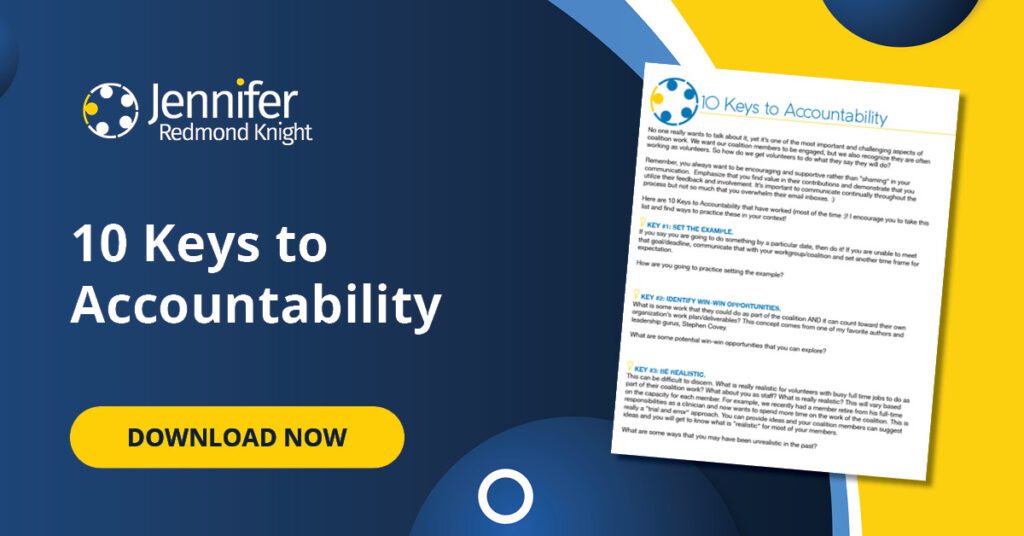We all work on deadlines – even if they are sometimes arbitrary. If we ask our coalition members to respond when they can, they may never respond. And who can blame them? Does anyone really have “extra time?” If we want to increase accountability in our coalition, we must set deadlines (that still give you a little time). Join me this week as I provide three reasons you want to set deadlines with your coalition.
Sets clear expectations
As Brené Brown reminds us, Clear is Kind, Unclear is Unkind. When we set a deadline, we give our staff, leaders and members clarity about expectations. If you are working with a workgroup or committee, you create a culture of accountability by setting deadlines. For instance, if you meet with a group every month, you can set a deadline the week before the meeting so that you have time to get everything ready prior to the meeting.
Prioritizes our work
Setting deadlines also helps us prioritize. Since we cannot do everything at once, setting deadlines helps us recognize what is important and what is realistic. When we examine our coalition commitments, we may recognize that we need to adjust some of our project, plans or timelines in order to set realistic deadlines.
Maintains momentum
Whenever we don’t have a next meeting date or a specific timeframe identified, it is really easy to lose momentum and need to ‘restart’ efforts. When we set deadlines, we can maintain momentum in a workgroup, committee, project. This momentum inspires accountability. Also, since we all work on deadlines, the deadlines we set for others in our coalition can keep us accountable. When we set the example for accountability (see key #1), we build trust, model commitment and maintain momentum.
How are you going to practice setting a deadline with one of your current projects or workgroups?
Check out my latest free resource that walks you through practical ways to apply each of these 10 Keys to Accountability!
Photo by Towfiqu barbhuiya on Unsplash


